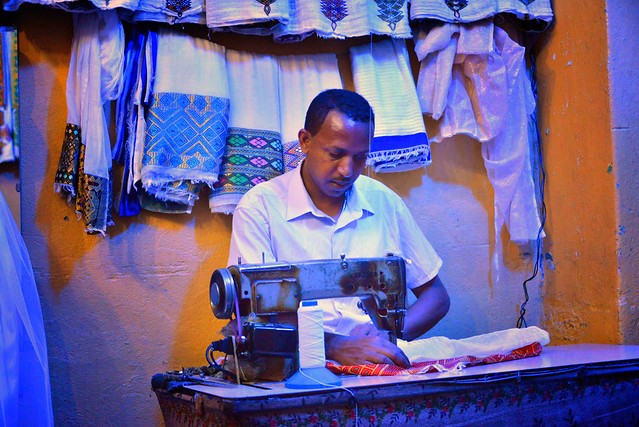5 Clothing Brands That Pay a Living Wage

In the age of fast fashion, headlines about clothing brands often highlight unfathomably low wages and inhumane working conditions. Companies like Nike have been accused of using sweatshops in Southeast Asia to produce their clothing and shoes on and off since the 1970s. Documentaries like The True Cost have increased public awareness about the grueling working conditions in Asian garment factories, often illegal even when workers’ rights laws are far from comprehensive, all to yield excessive profit margins for large American- or European-based clothing brands. However, some clothing companies have made ethical production a key component of their business, and they prioritize living wage for their employees over excessive profits. This article will highlight five clothing brands that pay a living wage, exemplifying ethical and transparent production practices in garment factories in developing countries.
5 clothing brands that pay a living wage
- Matter is a Singapore-based clothing company that sources its materials directly from rural artisans in India and Indonesia. Its philosophy is to serve as a link between these rural artisans and the global market, thus adopting a hybrid supply chain model that combines hand- and machine-woven garments. Matter’s garment factory is closely monitored to live up to international compliance standards and provide its workers with a living wage. It also exclusively uses eco-friendly and natural dyes to protect the environments of the communities where its artisans live and work.
- Grana’s business and production both take place in Hong Kong, modeling ethical manufacturing in a metropolis known for its sweatshops while minimizing global shipping costs to maximize affordability for the consumer. Designing, manufacturing, and shipping from Hong Kong allow Grana to pay its workers a living wage while still having a mark-up of less than half of that of most brands. Its factories are visited regularly to ensure that they live up to the company’s high ethical and safety standards. Grana is dedicated to using the highest quality materials sourced from around the world, such as Peruvian Pima cotton, Mongolian cashmere, and Chinese silk, and all these high-end fabrics are produced by workers receiving a living wage.
- Everlane is exceptionally transparent about its production practices. Its website shows every single factory where its clothing is produced, which of its clothing is produced there, the number of employees, and a promise that this factory lives up to international ethical production standards. Every factory the company selects to produce its clothing has received a score of 90 out of 100 or better on providing fair wages, reasonable hours and a good environment for its employees. Its website also details the exact breakdown of production cost and profit for every piece of clothing, ensuring that consumers know they are paying a fair price for an ethically produced and high-quality item.
- Tonlé, a clothing brand based in Cambodia, is built on the philosophy of zero-waste clothing. Its website details the exact environmental impact of every item produced, which is always significantly lower than the waste created by conventional production of the same item. To live into its zero-waste philosophy, the company either uses all of a material to create a product, or it produces the product entirely from scraps. Its products are handmade without machine assistance, and the company exclusively uses natural dyes. On top of environmental sustainability, Tonlé is also dedicated to paying its employees fairly. In a 45-hour work week, the garment workers in its Phnom Penh factory make between 1.5-2.5 times what the average Cambodian garment worker makes in a 60-hour work week. Tonlé also ensures that factory conditions are safe, and it provides healthcare benefits, free lunches and paid vacations to its garment workers.
- Patagonia is one of the most well-known outdoor clothing brands in the United States, and it also prioritizes transparent and sustainable production practices. Every textile mill and factory it uses, from Sri Lanka to Nicaragua, is listed on its website with information including the number and gender breakdown of employees and the items produced there. Patagonia vets all of its factories to ensure that they are “safe, fair, legal and humane,” and it additionally pledges at least one percent of sales to grassroots environmental protection groups.
These clothing brands that pay a living wage are part of an ever-growing movement toward safe, ethical and sustainable clothing. While fast fashion is far from dead, many companies are choosing living wages over profits, a crucial step toward reducing global poverty and creating a more equitable global economy.
– Macklyn Hutchison
Photo: Flickr
